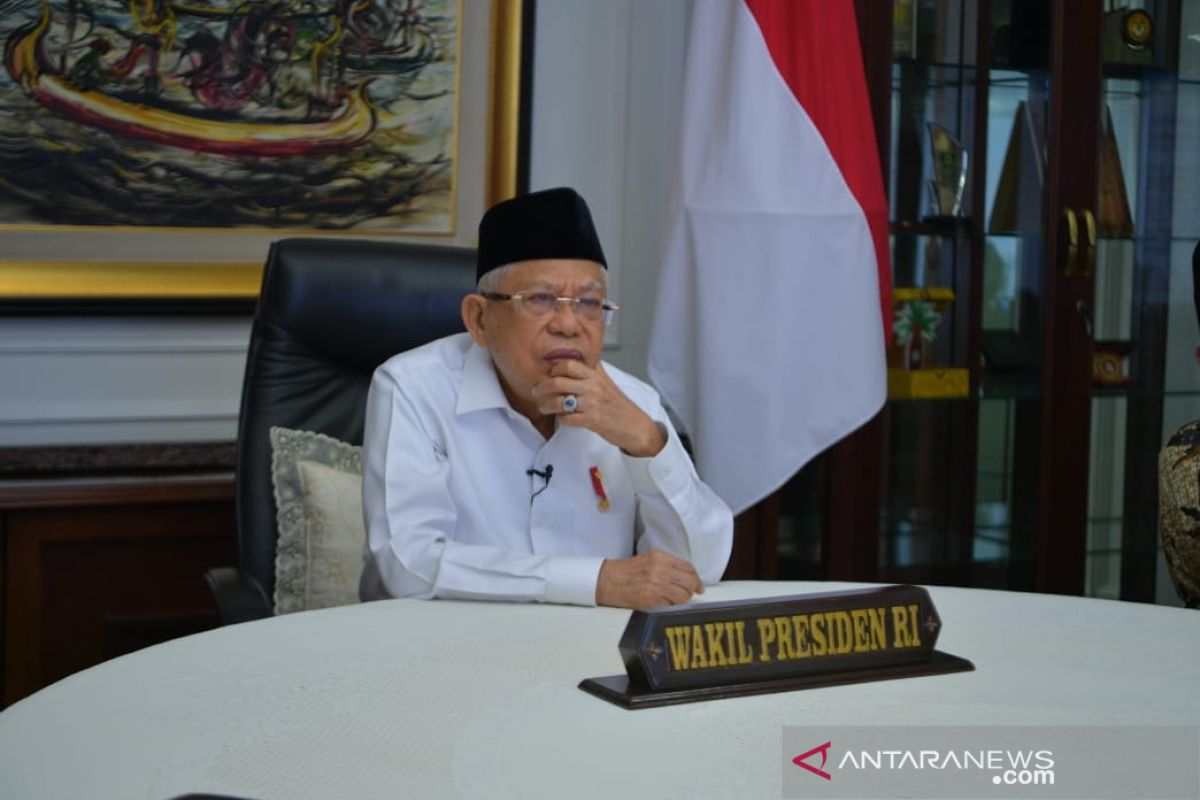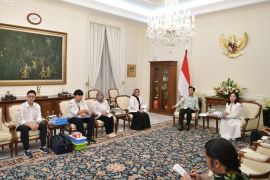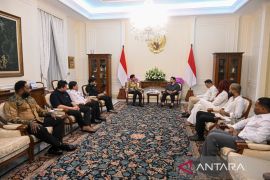At the close of the 2020 Fintech Summit and the 2020 National Fintech Week virtually, Vice President Amin from his official residence in Jakarta, Wednesday, highlighted Indonesia’s vast potential for the development of sharia economics and finance that should be supported by appropriate financial service innovation in tune with the needs of society.
"With such a large potential for economic development and Islamic finance, financial technology facilities and a process of digitizing transactions in accordance with sharia principles are needed," Amin emphasized.
Digital and online economic activities are becoming a new model that cannot be avoided in the midst of current technological developments. The vice president drew attention to the fact that economic activities were still running due to technology assistance amid the COVID-19 pandemic.
Drawing reference to the results of a World Bank survey, Vice President Amin pointed out that online economic activities had witnessed a decline in sales as compared to those transacting offline. Hence, he stressed on the increasing importance of financial technology (fintech) in these economic activities.
“The pandemic condition shows the important role of financial technology or fintech in the economy. Hence, for the government, support for fintech development will be a top priority now and after the COVID-19 epidemic," the vice president explained.
The vice president lauded the development of fintech in Indonesia, which he believes was quite good. Since 2016, at least 500 fintech operators have been operating in various forms and services.
"This development is certainly very significant, because in 2016, only some 24 registered fintech operators were registered," he stated.
Development of the technology industry in the financial sector is also marked by the increasingly diverse business models and financial technology solutions.
"I noted that there are at least over 23 business models available, including in the form of digital payment services, digital loan services, digital fundraising services - one of the popular forms is crowd funding, technology-based insurance services, technology-based investment management services, as well as market information gathering services," he noted.
Hence, the vice president is optimistic that these developments would be implemented in the sharia-based fintech, which can potentially encourage the development of Islamic economics and finance as pillars of the national economy.
Related news: Digitalization key for future economic growth: BI
Related news: Digitalization boosts productivity amid COVID-19 pandemic: ministry
EDITED BY INE
Translator: Fransiska N, Azis Kurmala
Editor: Suharto
Copyright © ANTARA 2020












